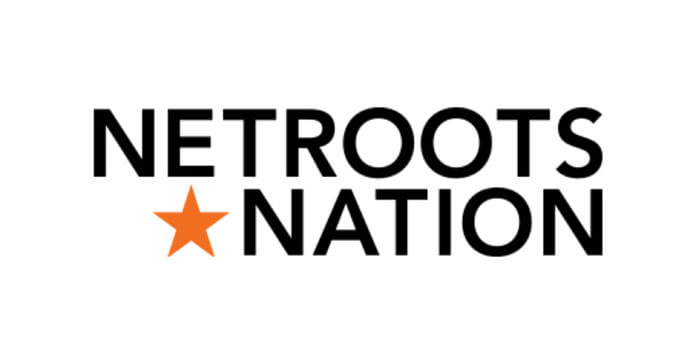“Every movement can be tracked back to the importance of abortion access,” said Lizz Winstead of the Abortion Access Front. This was the central theme of Saturday morning’s Netroots Nation panel titled: Post-Roe Doesn’t Mean Post Abortion…If You Step Up. This panel also included Cece Caruso from Plan C Pills, Tara Murtha from the Women’s Law Project, Lara Chilean from Northland Family Planning, and Kristin Hady from Abortion Access Front.
Tara Murtha addressed this issue as well, noting that abortion access has been strategically isolated on all sides: the procedure being isolated from hospitals, the movement stigmatized in the broader progressive movement, and racism within the reproductive freedom movement perpetuating this isolation. Murtha cited mass incarceration and LGBTQIA+ rights as two additional areas that clearly lead one back to the need for abortion justice.
For these reasons, progressives need to have very open conversations about abortion. Lizz Winstead said that if you cannot say abortion, if you cannot talk about abortion, the people in your community who have had them will not trust you with their story. She notes that if you do not know many people who have had abortions, this could easily be the issue.
Murtha also talked about the need to call out progressive representatives and candidates who oppose abortion but avoid taking a position. People need to know where their lawmakers stand, making it very important to publicize abortion stances or the refusal to offer one. Murtha tasked advocates to “…make life hard for your local politician.” This means making phone calls and visiting government offices to demand meetings and demand the space to share your story before state legislatures.
Cece Caruso pointed out the active nature this kind of advocacy demands: “It’s always ‘voting and’ not ‘voting just.’” Voting just rhetoric tends to be perpetuated by the Democratic Party, which Caruso believes to be extremely problematic. Their call to action in response to this is to persistently “agitate” both conservatives and progressives to “…remember who they represent and who they work for.”
Caruso’s work at Plan C Pills includes providing information and resources for self-managed abortions, a particularly controversial form of abortion access. They addressed the need to be careful about this option’s legality and risk, but also pursue it as a viable option for people in abortion care desserts without the ability to travel. As areas where abortion care is inaccessible grows, the group of people this service can benefit increase.
A sizable portion of this panel focused on what the people can do now to help abortion providers and support the movement. All panelists generally agreed on the benefit of asking currently existing providers which areas they need the most help in. Lara Chilean encouraged advocates to avoid self-starting movements without consulting abortion providers in the area — for example, counter-protesting outside of clinics without asking first. She said that this is often harmful and has the potential to create a dangerous situation for people seeking care.
Winstead added to this by also discouraging supporting “Auntie Networks,” which most often include independent forums where people offer their homes to people crossing state lines to seek legal abortions. She pointed out the problematic nature of these networks as they are likely to violate the right to privacy when seeking abortion access. People should not be forced to be a “good guest” in order to receive an abortion. Instead, Winstead suggested donating to an existing provider that financially assists with travel and hotels.
Cece Caruso concluded the panel with three helpful resources to spread in communities that are listed below. The Repro Legal Helpline provides support to those who are seeking legal information and guidance concerning state abortion laws. This resource connects those seeking abortion with legal advocates and resources. The second resource, Plan C’s Guide to Pills, provides extensive information on self-managed abortion and also includes a locator for clinics that offer this service. Finally, the Miscarriage and Abortion Hotline is run by abortion clinicians seeking to give advice to those self-managing miscarriages and abortions.
Repro Legal Helpline: 844–868-2812
Plan C’s Guide to Pills
The Miscarriage and Abortion Hotline: 1–833-246‑2632
Netroots Nation 2022 — Day 3 — Featured Panel: Post-Roe Does Not Mean Post-Abortion
“Every movement can be tracked back to the importance of abortion access,” said Lizz Winstead of the Abortion Access Front. This was the central theme of Saturday morning's Netroots Nation panel titled: Post-Roe Doesn’t Mean Post Abortion…If You Step Up.

